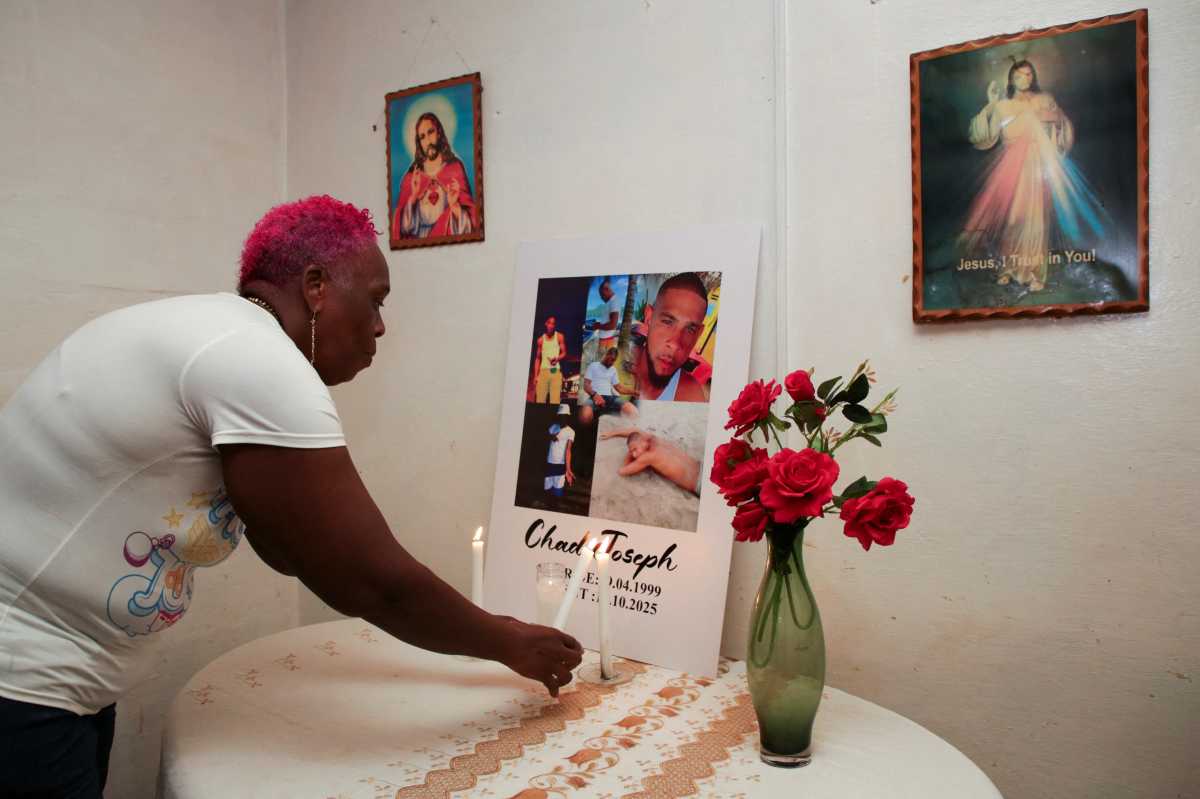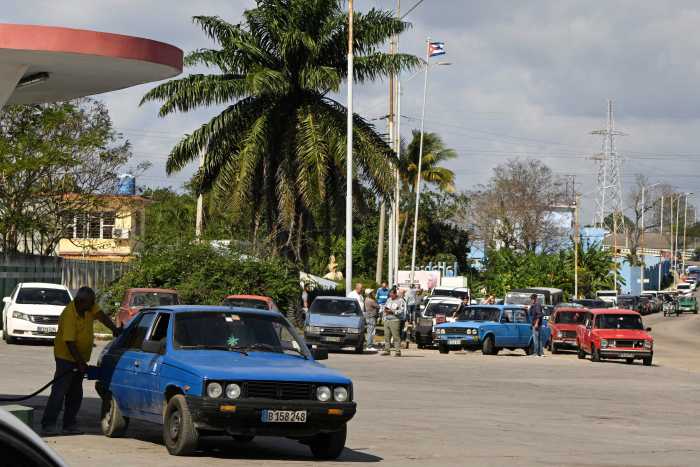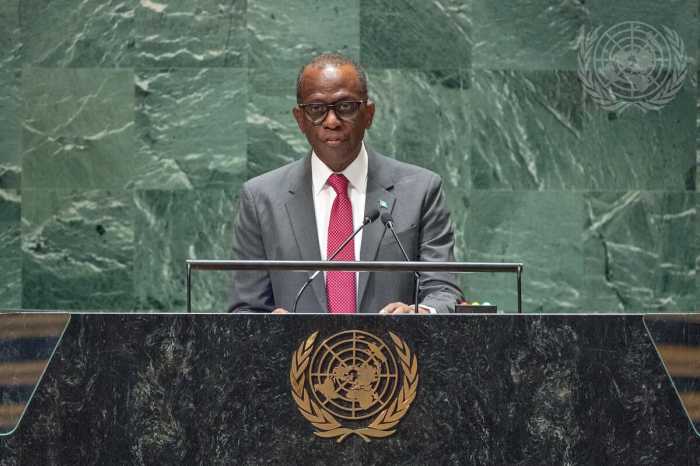Caribbean
According to the Global Multidimensional Poverty Index 2025 released by the United Nations Development Programme (UNDP) and the Oxford Poverty and Human Development Initiative, Caribbean nations struggle with inequalities and rising climate risks.
The report, “Overlapping Hardships: Poverty and Climate Hazards,” paints a distinct picture of how poverty and climate change coincide across the developing world.
It reveals that 23.5% of people in Small Island Developing States (SIDS), which is approximately 13.6 million people, live in multidimensional poverty.
While some Caribbean countries have made progress, the region remains heavily divided.
Haiti continues to record some of the highest poverty levels globally, with more than 40%℅of its population deprived of necessities such as access to clean cooking fuel, safe drinking water, sanitation, and adequate housing.
By contrast, countries such as TT and Cuba have recorded less than one % of their populations living in multidimensional poverty. Guyana, also had a relatively low national poverty rate of 1.8%.
The most common deprivations across the Caribbean and other island states include a lack of clean cooking fuel, poor sanitation, substandard housing, and unreliable electricity. The UNDP warns that climate change is worsening these vulnerabilities.
The report noted that SIDS face a double burden of poverty and climate change, noting that many poor households are already facing floods, droughts, and high heat, alongside economic and social deprivation.
Globally, the MPI finds that 18.3% of the population (app. 1.1 billion people) in 109 countries live in acute poverty.
UNDP calls for urgent, integrated policies that deal with poverty reduction, climate adaptation, and sustainable development, particularly for island states on the frontlines of the climate crisis.
Dominica
Minister of National Security Rayburn Blackmoore recently announced that night court would be reintroduced in Dominica. He said he believes that the “court should operate in a way that allows for greater flexibility and that will allow people seeking to access the court to actually settle grievances.”
However, the Dominica Bar Association (DBA) says that while it acknowledges the efforts to reduce the case backlogs, it also has “serious concerns about the impact of the decision to reintroduce night court sittings in the country.”
The DBA said that the recent directive of the Ministry of Legal Affairs was to introduce nightly Magistrate Court sittings for seven hours, four days a week. However, there are “serious concerns about the impact of this initiative on court users and practitioners.”
It said that extended evening hours may create significant challenges for several groups, including rural residents who are returning home late at night and may pose safety, cost, and transportation difficulties, as well as women and parents with caregiving responsibilities who may be unable to participate fully in hearings scheduled during evening hours.
It said that the initiative may also not benefit vulnerable individuals, such as the elderly and persons with disabilities, for whom late-night hearings may be particularly burdensome. It noted that “we have already received complaints from some elderly litigants about the inconvenience of night court, given their limited mobility.”
The DBA added that legal practitioners and support staff, who have to provide their services for the extended hours, may find it impossible due to family obligations, and that employers whose employees are required to attend court on their behalf will have overtime payment for employees attending court beyond their regular hours of work.
Guyana
The government of Guyana has penned a US$156 million loan agreement with the World Bank as part of its Integrated Transport Corridors Project (ITCP).
Senior minister Dr. Ashni Singh signed the agreement on behalf of the Guyana government. In contrast, the World Bank’s vice president for Latin America and the Caribbean, Susana Cordeiro Guerra, signed on behalf of the bank.
The project, which involves major upgrades and rehabilitation of several roads across the country, is expected to boost Guyana’s transport infrastructure sector.
The finance minister welcomed the World Bank’s engagement, noting that the ITCP project will greatly contribute to the government’s ongoing efforts to expand and upgrade the country’s transport networks.
“This project has the potential to help unlock increased production and productivity in our non-oil economy, such as through farm-to-market roads, which facilitate both production and trade, as well as to improve connectivity between communities,” Singh said.
Singh also said the government has an aggressive transport infrastructure agenda to improve connectivity with its neighbours and promote the deepening of trade ties. The government also wants to unlock productive capacity and productivity domestically with heavy investment in infrastructure to connect production to markets and to connect communities. The loan is expected to impact some of those projects significantly.
Haiti
The UN Office for the Coordination of Humanitarian Affairs (OCHA) is warning of a resurgence of cholera in Haiti, as it reports on the impact of ongoing gang violence that has plagued the French-speaking Caribbean country.
OCHA, the UN aid coordination office, said the resurgence had been occurring over the past month and that health authorities had reported some new cases.
It said that in just a week between Oct. 5 and 11, there were 139 suspected cases recorded, including more than 20 laboratory confirmed. Five deaths were also reported.
Petion-Ville and parts of the capital Port-au-Prince, including the commune of Cite-Soleil, remain on red alert, among the concerns over cholera spreading at sites hosting internally displaced, OCHA added.
It said that Haiti’s Ministry of Health, with support from the UN-backed Pan American Health Organization (WHO) and humanitarian partners, has stepped up disinfection campaigns, community awareness programmes, and the distribution of chlorine, safe water, and hygiene kits in the areas that are most impacted.
Jamaica
A senior government official in Jamaica has reaffirmed a commitment to working with the development partners to strengthen citizen security and empower at-risk youth.
Chief Technical Director in the Ministry of National Security and Peace, Shauna Trowers, told the graduation and closing ceremony for the European Union (EU)-sponsored Building through Reintegration, Intervention, Development, Growth, and Education (BRIDGE) Project, that the collaboration reflects a shared vision for peace, safety, and youth empowerment.
“The Ministry of National Security and Peace has enjoyed great working relationships with both the EU and the MYF (MultiCare Youth Foundation). I think it’s easy to get along when we have the same vision and our goals align,” she said.
The 34-month BRIDGE project provided layered, evidence-based interventions targeting at-risk youth in Kingston and St. Andrew, Clarendon, Westmoreland, and St James communities. It focused on strengthening literacy, life, employability skills, mentorship, and behavioural support.
More than 300 young people benefited from training, counseling, internships, and vocational placements, while teachers, community members, and youth workers were also trained to ensure sustainability and continued community impact.
Trowers noted that the BRIDGE Project, which focused on providing interventions to curb crime and violence among the youths aged 15 to 29, addressed socio-economic issues affecting vulnerable communities.
“We endorsed the program and continue to endorse initiatives like this because it goes to the heart of some of the critical issues reducing risk while building capacity,” she said, adding that “it’s one thing to give a man a fish, but it’s another to teach him to fish. No one partner can do it alone.”
Compiled by Devika Ragoonanan























